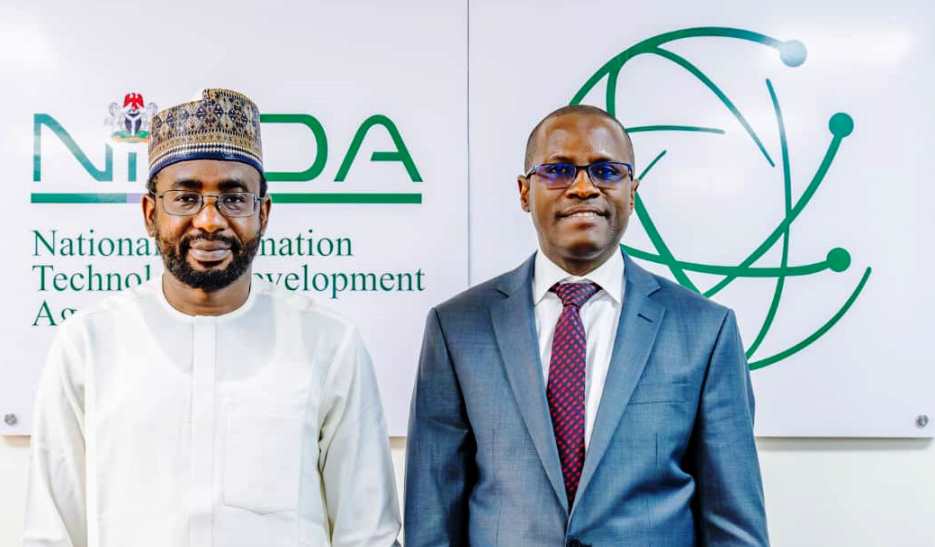Across West Africa, governments are rapidly embracing technology to improve governance, transparency, and public service delivery. In Nigeria, the stakes are especially high as the digital landscape expands, bringing both unprecedented benefits and new challenges. Recognising this, the National Information Technology Development Agency (NITDA) recently joined forces with the Independent Corrupt Practices and Other Related Offences Commission (ICPC) to set up a Joint Task Force aimed at safeguarding the country’s ambitious digital transformation from corruption and inefficiency. This partnership marks an important step in demonstrating that Nigeria’s drive for technological advancement must be matched by robust accountability and transparency.
Over the last decade, NITDA has positioned itself as a catalyst for Nigeria’s digital growth. From launching e-government platforms that streamline public engagement to establishing digital innovation hubs across the country, NITDA’s influence is widely felt. One of its hallmark achievements is the Nigeria e-Government Master Plan, a comprehensive roadmap for digitising public services. Additionally, the National Digital Economy Policy and Strategy (NDEPS), launched in 2019, has guided Nigeria’s adoption of digital tools to enhance efficiency in ministries, departments, and agencies.
Central to public confidence is the implementation of the National Public Key Infrastructure (PKI), which underpins the security of online transactions and is critical for trusted digital services. Digitalisation, however, is more than just infrastructure—it’s about nurturing people. According to NITDA, their ongoing investments in digital literacy span initiatives such as the 3 Million Technical Talent (3MTT) programme, which targets the training of millions of Nigerians in ICT skills relevant to today’s fast-evolving job market. Similarly, the National Centre for Artificial Intelligence and Robotics (NCAIR), situated in Abuja, proves pivotal in advancing local expertise and fostering indigenous tech solutions. Experts say such capacity-building helps bridge Nigeria’s technology skills gap and empowers a new generation of digital innovators.
Despite these achievements, rapid digital expansion opens new avenues for impropriety. Without proper oversight, government ICT projects can be vulnerable to mismanagement, duplication, or outright corruption—risks that have derailed other sectors in the past. Veteran ICT consultant, Musa Bello, told NowahalaZone, “Even well-designed digital projects can run aground if transparency isn’t prioritised from day one.”
To directly address these threats, NITDA’s partnership with the ICPC for a Joint Task Force establishes a unique synergy: technical know-how meets anti-corruption enforcement. Their mandate is to audit both ongoing and completed ICT projects, closely monitor procurement and contracting, and enforce standards of accountability throughout the digital sector. By leveraging NITDA’s technical expertise and ICPC’s investigative authority, the task force aims to catch potential irregularities early while ensuring that new digital ventures deliver measurable improvements.
Key objectives include:
- Reviewing project spending and contract awards to detect irregularities or inefficiencies.
- Ensuring compliance with procurement laws and technical standards.
- Enhancing transparency by mandating periodic public updates on project status.
- Promoting best practices for financial management and cyber-resilience.
Industry analysts say this oversight can fundamentally change how government ICT projects are developed and maintained. According to a source at the Centre for Information Technology and Development (CITAD), “By bringing transparency and accountability from the outset, government can avoid waste, increase investor confidence, and accelerate broad-based economic benefits.”
Beyond government reforms, the NITDA–ICPC initiative is significant for the wider tech ecosystem. For startups, software developers, and digital service providers, predictability is essential. When funds are tracked and outcomes transparently reported, private investment in Nigerian tech becomes far more attractive. According to the Nigerian Startup Ecosystem Report 2023, uncertainty around government contracts and inconsistent regulatory enforcement have been major barriers for local and foreign tech investors. Addressing these issues could unlock new capital flows and partnerships, not just in Nigeria but across West Africa.
Transparency also benefits the wider population. When digital projects are managed efficiently and funds redirected from wasteful spending, more resources become available for impactful programmes—such as expanding rural broadband, upgrading ICT infrastructure, or rolling out digital literacy to under-served communities. “People want to see that taxpayers’ money works for everybody, not just a few,” commented Lagos-based public affairs analyst, Ifeoma Ejiofor.
Nevertheless, effective oversight is not without obstacles. The Joint Task Force will need to guard against political pressure, entrenched interests, and slow-moving administrative processes that could bog down its work. Others have expressed concern that, without clear separation of powers and operational independence, the task force may struggle to hold powerful actors accountable. To counter this, sources recommended the following:
- Implementing strict governance protocols for the task force’s activities.
- Ensuring operational autonomy protected by legislation and institutional support.
- Regularly publishing performance reports for public scrutiny and engagement.
- Partnering with independent experts, civil society groups, and investigative journalists to broaden oversight.
According to a recent interview with a senior official at the Premium Times Centre for Investigative Journalism, “Civic engagement is crucial. The public must not only be informed but empowered to question and contribute to how digital projects are run.”
Across Africa, similar efforts to marry digital innovation with anti-corruption reforms can be seen in Ghana, Kenya, and Rwanda, where electronic procurement portals and open data initiatives have reduced leakages and improved trust. Nigeria’s own journey will likely be shaped by how the NITDA–ICPC Joint Task Force navigates local realities: the scale of the digital economy, levels of political will, and readiness for genuine transparency. According to the 2022 Corruption Perceptions Index by Transparency International, Nigeria ranked 150th out of 180 countries. While digital oversight alone won’t fix all institutional issues, it can build momentum for broader reforms and inspire similar approaches in other countries facing parallel challenges.
As Nigeria accelerates its digital journey, the foundational work by NITDA—anchored in data protection, digital inclusion, and policy reform—is setting a compelling example. Yet, lasting progress will depend on more than just deploying advanced technology. The real test lies in ensuring these tools translate into better services, prudent public spending, and, above all, a culture of integrity at every level of government.
The NITDA–ICPC Joint Task Force, if supported with adequate resources, legal backing, and genuine political commitment, offers a potential blueprint for robust, transparent digital governance. This approach can transform public perception, fuel economic growth, and help position technology as a true force for national development—not just in Nigeria, but for neighbouring states looking to embark on their own digital transformations.
What do you think—can Nigeria’s digital future truly be corruption-free, and what steps should government, citizens, and the tech sector take to make accountability the norm? Share your thoughts below and join the conversation.










